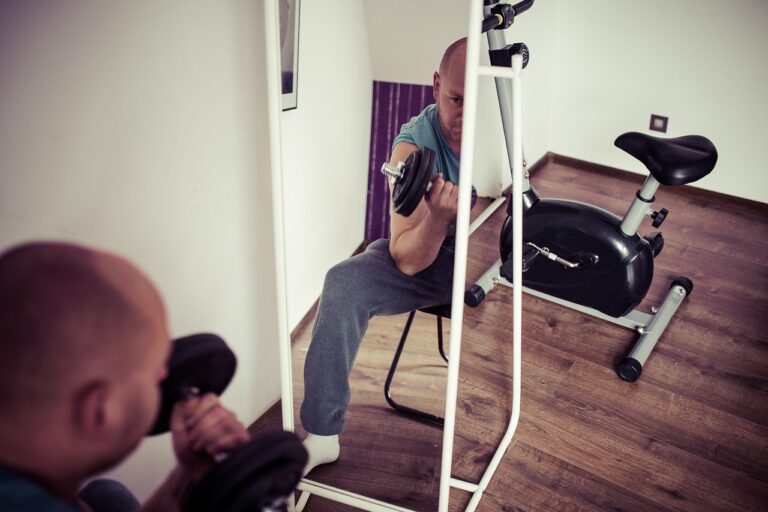Nephrology Success Stories: Inspiring Stories of Kidney Patients: 11xplay.com login, India24bet 24, Skyexchange fair
11xplay.com login, india24bet 24, skyexchange fair: Rheumatology and Rehabilitation: Improving Functionality
Living with a rheumatic condition can be challenging, affecting not only a person’s physical health but also their emotional well-being. Rheumatic diseases, such as arthritis and lupus, can cause pain, stiffness, and inflammation in the joints, making everyday tasks difficult to perform. However, with the help of rheumatology and rehabilitation, individuals can improve their functionality and quality of life.
Rheumatology is a medical specialty dedicated to the diagnosis and treatment of rheumatic diseases. Rheumatologists are experts in managing conditions that affect the joints, muscles, and bones, such as rheumatoid arthritis, osteoarthritis, and gout. These specialists work closely with patients to develop personalized treatment plans that may include medication, physical therapy, and lifestyle modifications.
Rehabilitation plays a crucial role in the management of rheumatic conditions, focusing on restoring function and mobility to affected joints. Physical therapists are skilled in designing exercise programs to strengthen muscles, improve flexibility, and reduce pain. Occupational therapists help individuals learn how to perform daily activities more efficiently and with less strain on their joints.
By combining rheumatology and rehabilitation, patients can achieve significant improvements in their functionality. Let’s explore how these two specialties work together to help individuals with rheumatic conditions lead healthier and more active lives.
Understanding Rheumatic Conditions
Rheumatic conditions encompass a wide range of disorders that affect the bones, muscles, and joints. These conditions can cause pain, swelling, and stiffness in the affected areas, making it challenging to perform everyday tasks like walking, dressing, and cooking. Common rheumatic diseases include osteoarthritis, rheumatoid arthritis, lupus, and fibromyalgia.
It’s essential for individuals with rheumatic conditions to work closely with their rheumatologist to manage their symptoms effectively. Rheumatologists can provide medications to help reduce inflammation and pain, as well as monitor disease progression. In some cases, they may recommend physical therapy or occupational therapy to complement medical treatment.
The Role of Physical Therapy
Physical therapy is a key component of rehabilitation for individuals with rheumatic conditions. Physical therapists are trained to assess a person’s physical abilities and limitations, developing tailored exercise programs to address their specific needs. These programs focus on strengthening muscles, improving flexibility, and enhancing overall mobility.
Physical therapy can help individuals with rheumatic conditions improve their range of motion, reduce pain, and prevent further joint damage. By engaging in regular exercise sessions under the guidance of a physical therapist, patients can build strength and endurance, making it easier to perform daily activities with less discomfort.
Occupational Therapy for Daily Functioning
Occupational therapy is another essential aspect of rehabilitation for individuals with rheumatic conditions. Occupational therapists specialize in helping people develop the skills and techniques needed to perform everyday tasks independently. They can provide strategies for conserving energy, using assistive devices, and modifying activities to minimize joint stress.
By working with an occupational therapist, individuals with rheumatic conditions can learn how to cook, clean, and dress themselves in ways that are less taxing on their joints. Occupational therapy can also help individuals adapt their work environment to accommodate their physical limitations, allowing them to remain active and productive in their chosen profession.
The Benefits of Rheumatology and Rehabilitation
The integration of rheumatology and rehabilitation offers numerous benefits to individuals with rheumatic conditions. By receiving comprehensive care that addresses both their medical and physical needs, patients can experience improvements in their functionality and quality of life. Some of the key benefits of this approach include:
1. Pain Management: Rheumatologists can prescribe medications to help alleviate pain and inflammation, while physical therapists can teach exercises to strengthen muscles and reduce joint stress.
2. Improved Mobility: Through physical therapy, individuals can enhance their range of motion and flexibility, making it easier to move and perform daily activities.
3. Enhanced Independence: Occupational therapy can empower individuals to learn new ways of doing things independently, boosting their confidence and self-esteem.
4. Disease Management: Rheumatologists can monitor disease progression and adjust treatment plans as needed, ensuring optimal control of the condition.
5. Long-Term Health: By incorporating rehabilitation into their care routine, individuals can maintain their physical health and function over time, preventing further disability.
FAQs
Q: How often should I see a rheumatologist for my condition?
A: The frequency of rheumatology visits will depend on the specific condition and its severity. Your rheumatologist will recommend a follow-up schedule tailored to your needs.
Q: Is physical therapy covered by insurance for rheumatic conditions?
A: Most insurance plans cover physical therapy for rheumatic conditions, but coverage may vary. It’s best to check with your insurance provider to determine your benefits.
Q: Can occupational therapy help me return to work with my rheumatic condition?
A: Yes, occupational therapy can assist individuals with rheumatic conditions in adapting their work environment and tasks to accommodate their physical limitations, enabling them to continue working.
In conclusion, rheumatology and rehabilitation play a vital role in improving functionality for individuals with rheumatic conditions. By working with a team of healthcare professionals, including rheumatologists, physical therapists, and occupational therapists, patients can achieve significant improvements in their mobility, independence, and overall quality of life. If you or a loved one is living with a rheumatic condition, consider exploring the benefits of rheumatology and rehabilitation to enhance your functionality and well-being.







